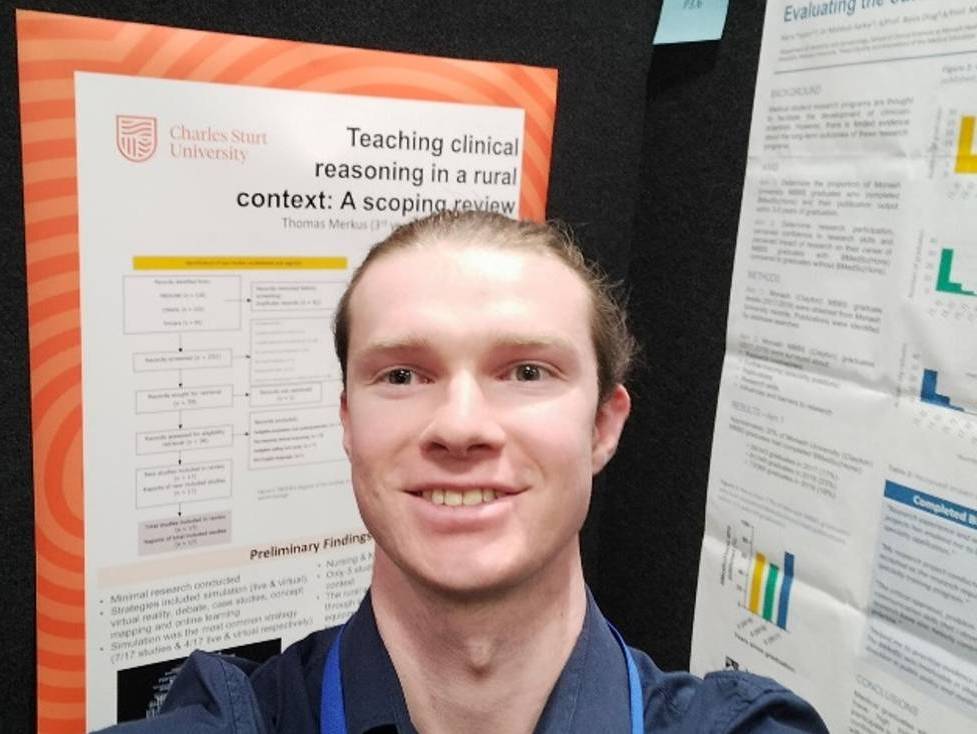School of Rural Medicine
Back to Faculty
YOU can make a difference
As part of your medical degree at Charles Sturt, Doctor of Medicine (MD) students are required to complete a scholarly research project. In the School of Rural Medicine, we refer to this as the 'MD project'.
As part of your medical degree at Charles Sturt, Bachelor of Clinical Science (Medicine) / Doctor of Medicine (MD) students are required to complete a scholarly research project. In the School of Rural Medicine, we refer to this as the 'MD project'.
The Research and Evaluation team is a dedicated, highly passionate team committed to making a difference to rural health outcomes through research. We support our students to source a research project of interest to you, and of relevance to the Rural Clinical School in which you are based (years 3-5). We will provide the required training to ensure you develop the necessary skills to undertake your project, and we will support you every step of the way. We have a ‘can do’ attitude – and want you to succeed in your MD project: we will support you to make a difference.
You can develop a project across a number of areas - your research project must aim to achieve improvement in rural health outcomes. Within the context of rural health, your project may be in one of the following areas - clinical medicine, community health, health innovation, First Nations health, health education, health systems, models of care / access, quality improvement, program evaluation or biomedical sciences.
My advice for students is to actively look for opportunities to promote your research and to grab them when they come up.
